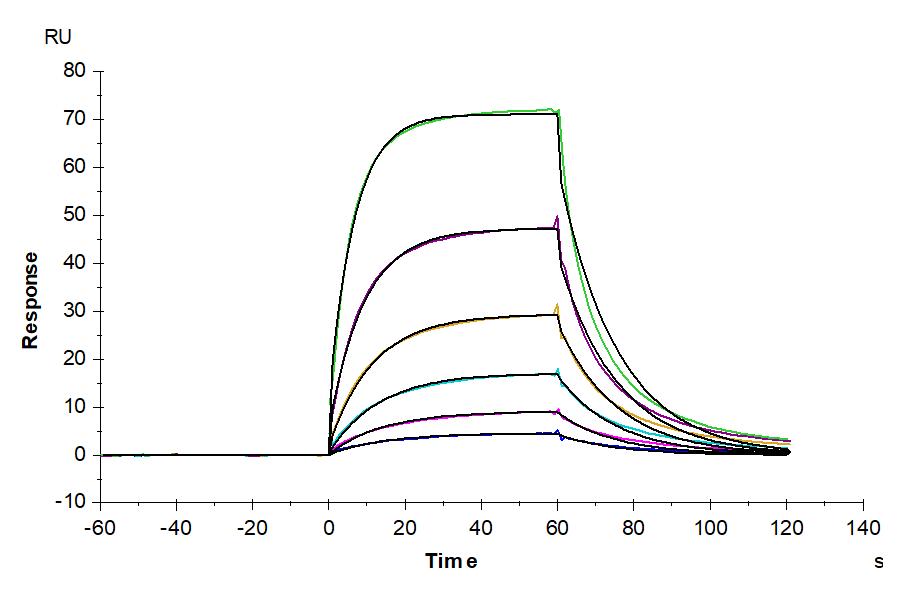|
| Human Alkaline phosphatase Protein (Intestinal type) (LTP10665) |
|
| LTP10665 |
|
| 100ug |
|
|
$563 In stock |
| Alkaline phosphatase can be considered "our favorite enzyme" for reasons apparent to those who diagnose and treat metabolic bone diseases or who study skeletal biology. Few might know, however, that alkaline phosphatase likely represents the most frequently assayed enzyme in all of medicine. Elevated activity in the circulation is universally recognized as a marker for skeletal or hepatobiliary disease. |
| Recombinant Human Alkaline phosphatase Protein is expressed from Expi293 with His tag and Flag tag at the N-terminal. It contains Val20-Asp503. |
|
| Alkaline phosphatase |
|
| Human |
|
| P09923 |
|
| Val20-Asp503 |
|
| The protein has a predicted MW of 54.5 kDa. Due to glycosylation, the protein migrates to 63-73 kDa based on the Tris-Bis PAGE result. |
|
| The affinity constant of 0.96 uM as determined in SPR assay (Biacore T200). See testing image for detail. |
|
| N-His-Flag |
|
| Expi293 |
|
| > 95% as determined by Tris-Bis PAGE; > 95% as determined by HPLC |
|
| Less than 1EU per ug by the LAL method. |
|
| Lyophilized from 0.22 um filtered solution in PBS (pH 7.4). Normally 5% trehalose is added as a protectant before lyophilization. |
|
| Reconstituted protein stable at -80 C for 12 months, 4 C for 1 week. Use a manual defrost freezer and avoid repeated freeze-thaw cycles. |
|
| Shipped at ambient temperature. |
|
| Centrifuge tubes before opening. Reconstituting to a concentration of more than 100 ug/ml is recommended. Dissolve the lyophilized protein in distilled water. |
|
|  |